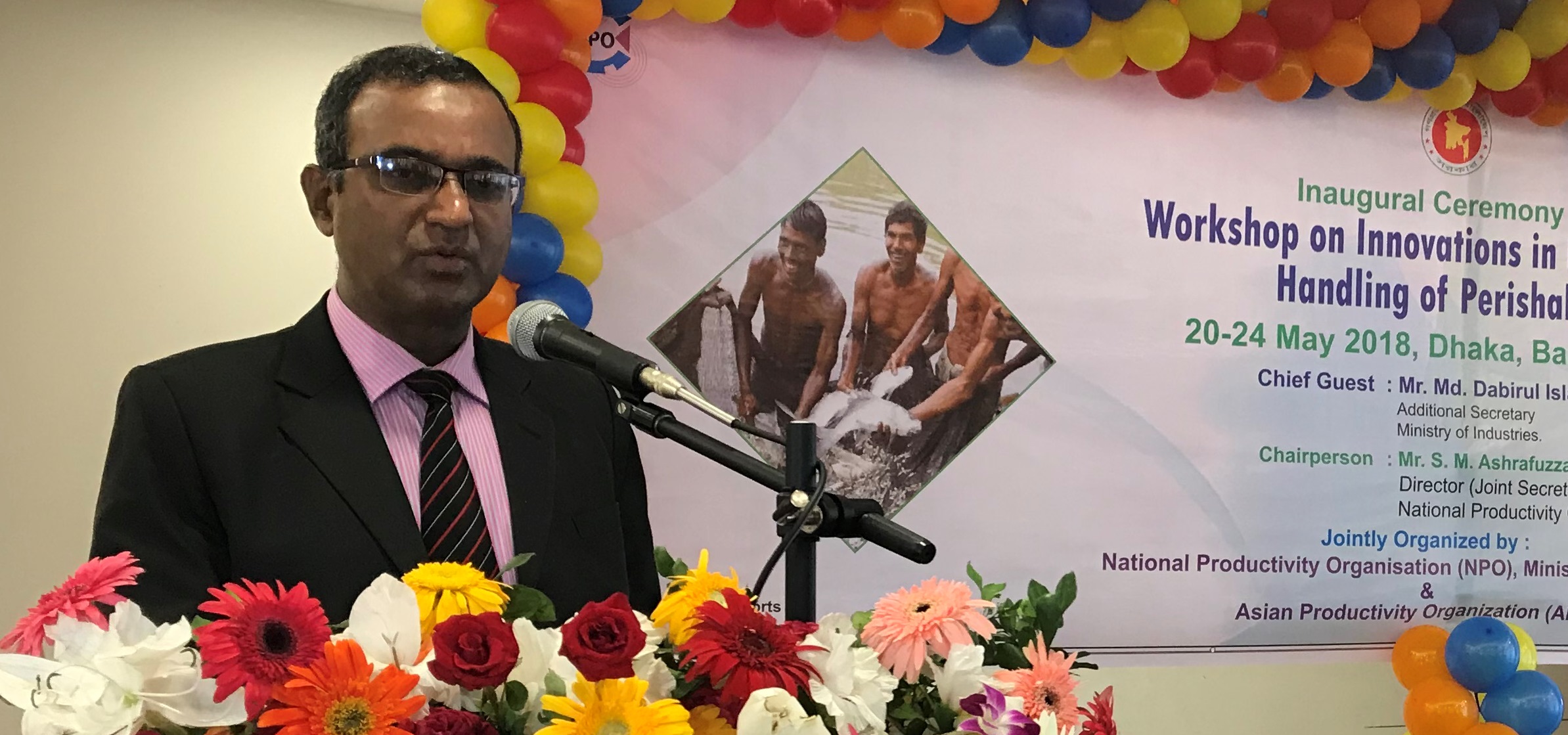
Select Page
With more than one-third of annual food production lost or wasted, burgeoning populations, and continuing concerns about food security as climate change affects agriculture, it is time to take new approaches to cutting postharvest losses of perishable items. Those losses are greater in developing countries and those with warm climates, meaning that they have negative impacts on agriculture in a majority of Asian Productivity Organization (APO) members.
In cooperation with the National Productivity Organisation (NPO) of Bangladesh, the APO is holding a five-day workshop on Innovations in Postharvest Handling of Perishables, which opened in Dhaka on 20 May 2018. The focus is on overcoming constraints faced by SME operators in improving postharvest practices, including poor transport infrastructure, lack of access to refrigerated storage, and inadequate packing and loading facilities.

Additional Secretary Md. Dabirul Islam of the Ministry of Industry of Bangladesh delivering inaugural address during the opening session of the workshop on Innovations in Postharvest Handling of Perishables in Dhaka, 20 May 2018.
Additional Secretary Md. Dabirul Islam of the Ministry of Industry was the chief guest at the inaugural session. He spoke in detail on the food losses occurring in different steps of the agricultural production process, particularly postharvest. Along with specific challenges faced by Bangladesh in improving those operations, with its different ecosystems and unfavorable agricultural conditions in many regions, Additional Secretary Islam described public–private initiatives to address them “from farm to fork.” He concluded that the workshop would “undoubtedly provide the opportunity to local professionals and policymakers to improve their knowledge of modern postharvest management technologies and approaches.”
During the opening session, Joint Secretary S.M. Ashrafuzzaman of the Ministry of Industry, who also serves as Director of the NPO, and Program Officer Dr. Shaikh Tanveer Hossain of the APO Secretariat Agriculture Department also gave presentations to the 23 participants representing 14 member countries.
International resource persons from Malaysia, New Zealand, and Thailand will guide the discussions over the next four days, covering smart technologies for better postharvest management, cost-effective new technologies for SMEs, applications of digital technology in postharvest operations, and optimum use of public–private partnerships for developing and promoting innovative postharvest techniques. Discussion sessions are scheduled to examine best practices of perishable handling to reduce losses, raise farmers’ incomes, and contribute to national nutrition goals.
A full day of visits to model postharvest food-handling facilities is planned, when the participants and resource persons will be able to assess efforts made to reduce losses of perishable produce and how similar initiatives could be adapted to their own agricultural contexts.